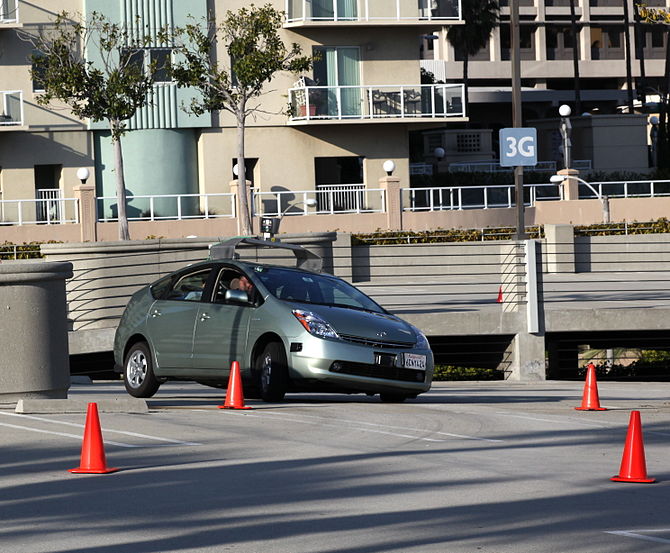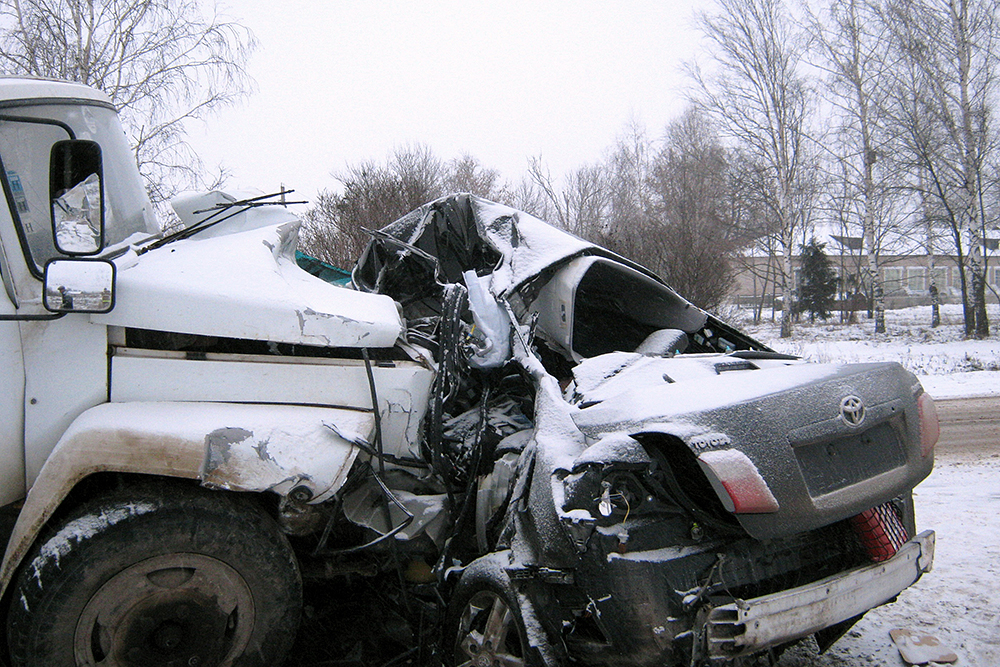How robotic cars will save hundreds of billions of dollars a year
This post was inspired by an article on Forbes on the economic benefits of switching to robotic cars. Under the cut is a list of three reasons and simple calculations, according to which projects from Google and the giants of the automobile industry to create a car without a driver, not only have the right to exist, but can also save lives, money and time.

You can say that robots are not smart enough, that a car with an autopilot on the road will be more dangerous ... But just what to compare? Because man, too, is still a "monkey with a grenade," regardless of gender, age, racial or religious affiliation. In 2013, 204,068 traffic accidents occurred in Russia , in which there were injured and dead. The total number of accidents is even greater. 27,025 people were killed, 258,437 were injured. More than 13.5 thousand accidents occurred due to the fault of drunk drivers.

Human life is priceless. Although in the USA there is the concept of “value of a statistical life”, that is, the “value of statistical life” used by the Department of Transportation. So in case of death of a person, his life is estimated at 9.2 million dollars. So saving 30,000 lives in the states is estimated at $ 276 billion. In 2005, fatal accidents resulted in a cost of $ 41 billion for medical services and other work. So in the United States spend about 317 billion dollars a year on such accidents.
But many accidents have not yet been taken into account, where no one was injured, except for the urban infrastructure and the vehicles themselves. The Minnesota Deptrans estimates the average such accident at $ 7,400, so the total costs for 2013 amounted to $ 226 billion.
The economic benefits for the United States are obvious, but for Russia? How much does our life cost?
Many work constantly, and often the amount of time spent on work is directly proportional to the money earned. You can also use time to improve your own skills, search for new material to study, take online courses.

Returning to the article with which it all began: according to the calculations of the US Deptrans, in 2013 the average US citizen spent 157 hours driving. Instead, people could improve their skills for the good of the budget. If you estimate at $ 2 every hour spent driving, then in 2013 it was "eaten" by driving $ 99 billion.
As a result, we have (only in the USA) $ 317 billion in fatal accidents, 226 billion in less serious accidents and $ 99 billion in terms of time saved. So unmanned cars are quite capable of generating about 642 billion dollars annually on a national scale.
Do you agree with what is written, or do you think that in modern realities unmanned cars will not cope with their task?

1. Fatal crashes
You can say that robots are not smart enough, that a car with an autopilot on the road will be more dangerous ... But just what to compare? Because man, too, is still a "monkey with a grenade," regardless of gender, age, racial or religious affiliation. In 2013, 204,068 traffic accidents occurred in Russia , in which there were injured and dead. The total number of accidents is even greater. 27,025 people were killed, 258,437 were injured. More than 13.5 thousand accidents occurred due to the fault of drunk drivers.

Human life is priceless. Although in the USA there is the concept of “value of a statistical life”, that is, the “value of statistical life” used by the Department of Transportation. So in case of death of a person, his life is estimated at 9.2 million dollars. So saving 30,000 lives in the states is estimated at $ 276 billion. In 2005, fatal accidents resulted in a cost of $ 41 billion for medical services and other work. So in the United States spend about 317 billion dollars a year on such accidents.
2. Accident without physical harm to people
But many accidents have not yet been taken into account, where no one was injured, except for the urban infrastructure and the vehicles themselves. The Minnesota Deptrans estimates the average such accident at $ 7,400, so the total costs for 2013 amounted to $ 226 billion.
The economic benefits for the United States are obvious, but for Russia? How much does our life cost?
3. Time
Many work constantly, and often the amount of time spent on work is directly proportional to the money earned. You can also use time to improve your own skills, search for new material to study, take online courses.

Returning to the article with which it all began: according to the calculations of the US Deptrans, in 2013 the average US citizen spent 157 hours driving. Instead, people could improve their skills for the good of the budget. If you estimate at $ 2 every hour spent driving, then in 2013 it was "eaten" by driving $ 99 billion.
Total
As a result, we have (only in the USA) $ 317 billion in fatal accidents, 226 billion in less serious accidents and $ 99 billion in terms of time saved. So unmanned cars are quite capable of generating about 642 billion dollars annually on a national scale.
Do you agree with what is written, or do you think that in modern realities unmanned cars will not cope with their task?
Only registered users can participate in the survey. Please come in.
Do unmanned cars do their job?
- 43.9% Yes, and they will be able to find their place on the roads among managed cars 387
- 45.3% Yes, but only if there are more on the roads 399
- 2.8% No, they will not be able to cope with emergency situations 25
- 7.8% No, the human factor will kill all good undertakings 69
